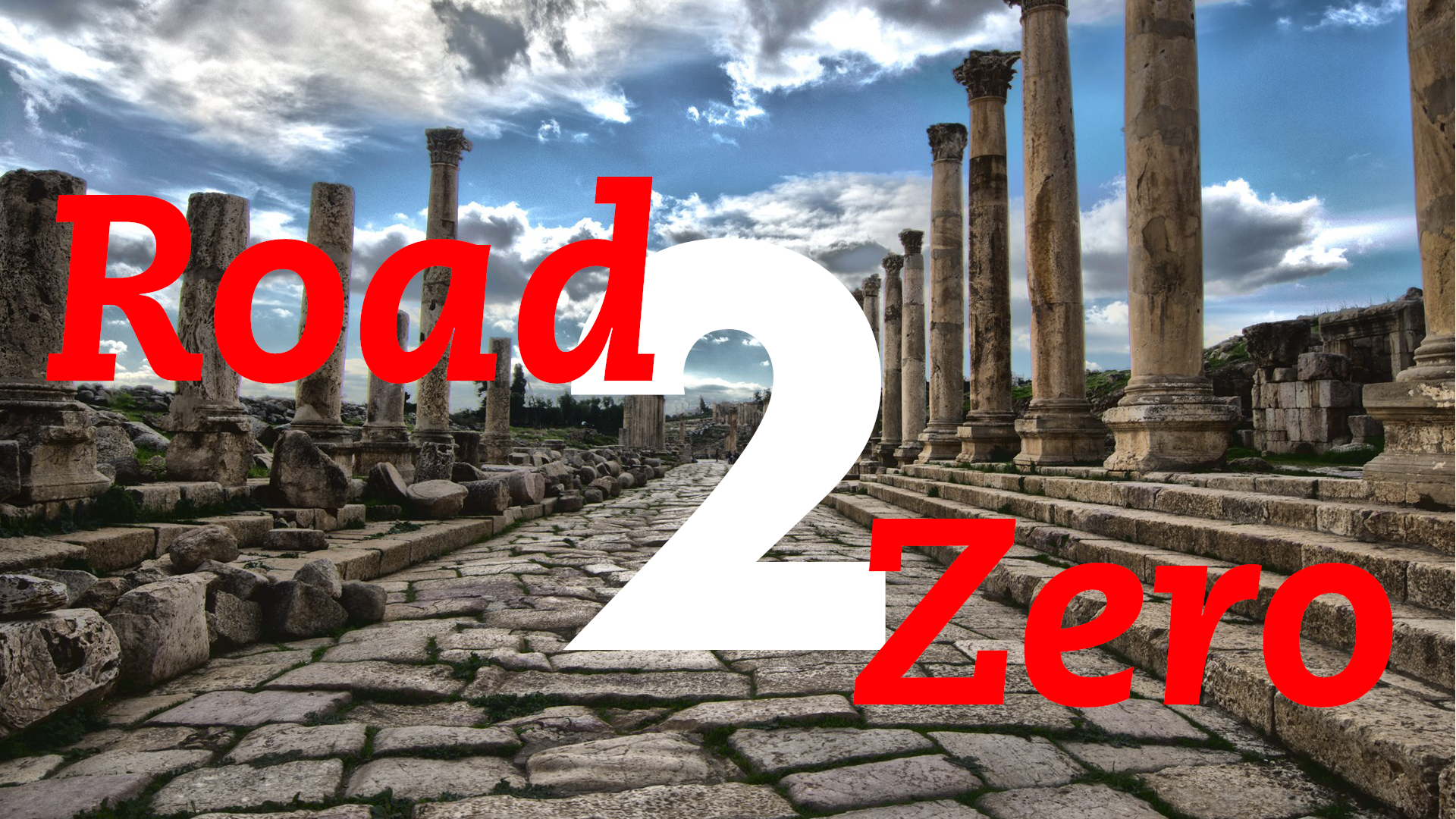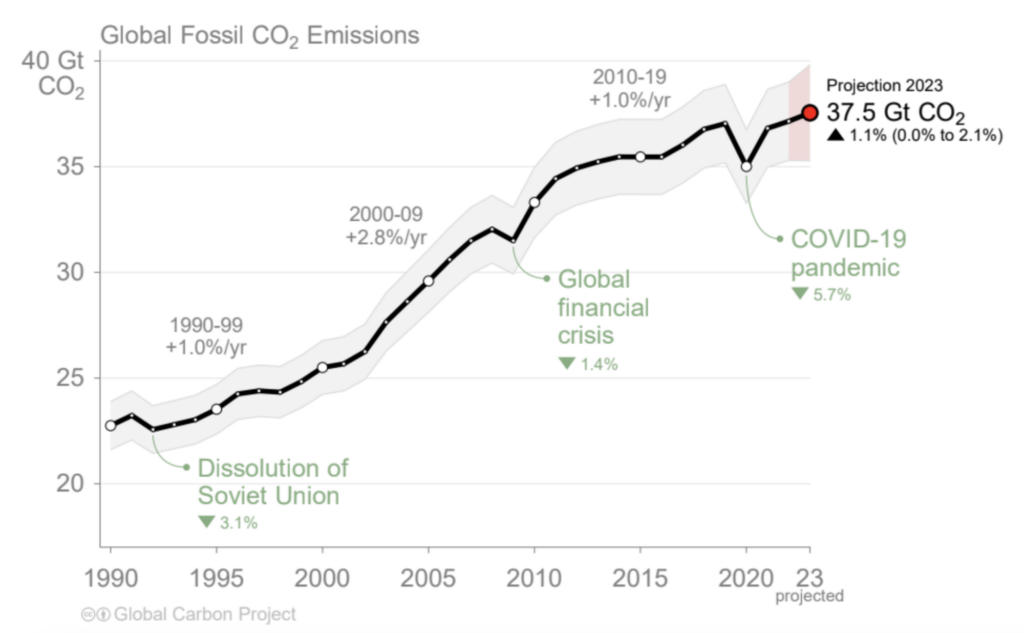The Podcast about the challenges and opportunities of the transition to net zero

Welcome to Road2Zero!
Episode by Episode we’ll investigate and discuss key challenges and opportunities facing business & society in the transition to net zero.
Specifically, we’ll focus on developments in the UK, although the experience there is likely to be mirrored in other countries.
So what is ‘net zero’?
Net zero is a state where the release of carbon dioxide and other greenhouse gases into the atmosphere is balanced by their removal.
Until we reach net zero, then climate change and global warming will continue – and so will the frequency of extreme and unpredictable weather events which threaten life, society and economic, financial and political stablity.
How big is the task ahead? In 2023, scientists estimate that 37.5 billion tonnes of CO2 (1) were released into the atmosphere by burning fossil fuels. This is equivalent to a cube of carbon dioxide measuring 27 km on each side. So, to achieve net zero, we must remove all of this CO2 – every year, just to stand still.
It is over 4 years since the world’s nations pledged to limit global warming to 1.5 degrees C above pre-industrial levels by the end of the century as part of the Paris climate accord. However, these commitments are not being met and greenhouse gas emissions continue to rise. As things stand, there’s little chance of limiting the rise to 2 degrees, while 3 degrees will be a major challenge.
To reach Net Zero, we must ‘decarbonise’ key sectors of the economy – in particular transport, heating, manufacturing and food production & agriculture. Achieving this will require a number of things to be done. Firstly, becoming far more energy efficient. Secondly, a massive growth in electrification with that electricity produced by clean or renewable means – by wind, solar and hydro, and by nuclear and other carbon free technologies. Thirdly, to make food production & agriculture more sustainable and less detrimental to the environment.
Achieving this isn’t going to be cheap – or easy. It’s going to require and unprecedented degree of co-operation between the public, private and academic sectors. But there will be many opportunities along the way to create new businesses, new wealth and new employment. It could also significantly improve our health and wellbeing, the quality and diversity of the environment and, most importantly, help safeguard the future of our children and all life on planet Earth.
Join the conversation
Enormous challenges – and opportunities – lay ahead, and there’s an important conversation to be had. The more people who join in, the better!
So, whatever your views on net zero, solar farms, on wind turbines, biomass, nuclear power on food security, electric vehicles and heat pumps – whether your for this, against that, or just plain confused – then let’s hear from you.
Alternatively, use your smartphone to record a short voice memo. We can use that as part of the podcast.
To contact us, then use the form below.
Thank You!
(1) Source: Center for International Climate and Environmental Research (CICERO) in Oslo, Norway

